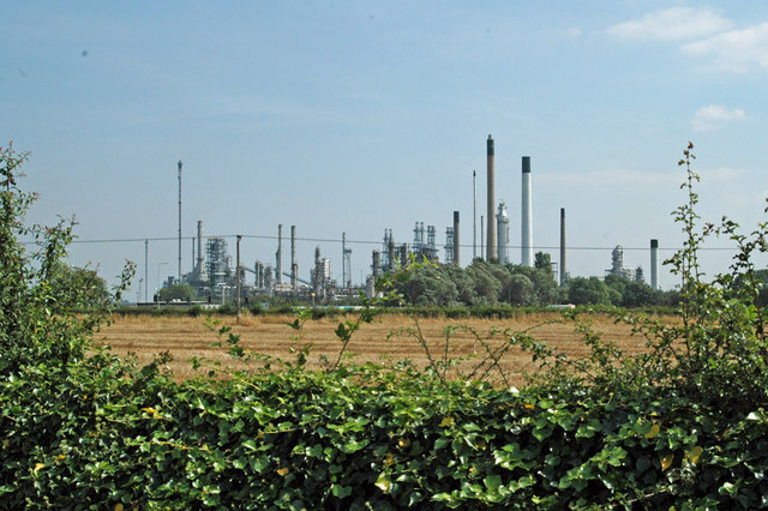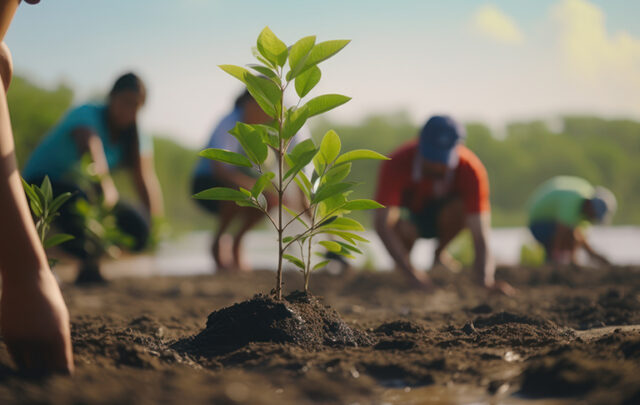It seems necessary to knock out a quick post about climate change – not something I’d planned to do right now, though perhaps I should have if I’d kept a closer eye on the news cycle. But with the IPCC’s 6th assessment report on mitigation of climate change just published, it seems somehow apropos. Plus, unexpectedly, I found myself helping out with the Just Stop Oil protests earlier this week, which has brought climate issues and climate activism right back to the forefront of my thoughts.
Other people are better placed than me to give their hot takes (literally, alas) on the content of the IPCC report. As a part-time observer of climate science social media, a full-time proponent of low-input agrarian localism and an almost accidental climate activist, I’m going to restrict myself to a few remarks on some of the report’s wider ripples in those arenas as I see them.
My sense of the professional climate science and climate change world is that people within it have, honourably, been making stark and loud warnings for a long time of the need for rapid and radical change to our modern GHG-emitting ways. But at the same time, some of those voices have been rather dismissive of two forms of rapid and radical change that I believe to be entailed in their analysis – a shift to low-energy agrarian localism, and non-cooperation or disobedience towards fossil-fuel extractive capitalist nation-states.
I find much to agree with in Professor Julia Steinberger’s writings, for example – including a good deal of her analysis in this Twitter thread arising from the IPCC report. And I salute her endorsement of current climate change protesting.
Where I part company with Prof Steinberger is in her view that scientists haven’t been raising the alarm with sufficient urgency until very recently, and that we’re “on the cusp of being able to replace fossil fuels completely”. Nothing I’ve yet seen has convinced me that we’re remotely on the cusp of being able to replace fossil fuels globally at current levels of energy use, let alone at levels that give people in low income/low energy countries fair access to resources. This is one of several reasons why I think the future for many people is likely to be lower energy, lower carbon, more localized and more job rich – a small farm future. But elsewhere Prof Steinberger has disavowed the case for low energy agrarian localism. As with much eco-socialism in the Global North, her position errs towards another version of techno-fix business as usual, the ‘electrify the hell out of everything’ mantra.
I’m not opposed to electrifying the hell out of everything, provided that we attend to the upstream and downstream consequences – the fossil fuelled pulse it would involve, the human and resource consequences of mining the lithium and rare earths, the nuclear proliferation and nuclear waste issues – so that this new electrified dawn doesn’t indeed just turn into hell. But, in addition to the fact that it will still involve using less energy, the real problem isn’t the hardware but the software, our cultures of materialism and capitalism. These, ultimately, are what need re-engineering more than our energy technologies. So I feel a bit torn when Professor Steinberger fulminates against those who imply “we should just give up” or who say it’s too late to do anything. I agree we shouldn’t give up and it’s not too late to do anything. But, with hindsight, it seems easy to see that ultimately it was always going to be too late to do anything within a cultural regimen inherently dedicated to endless commodification and the increase of capital. So unless that regimen is brought swiftly to its end, then yes – it probably is too late.
There’s one ‘too late’ that does seem to emerge clearly from the IPCC report. If GHG emissions don’t peak within three years at the latest, it says, then it will be too late to limit global warming to 1.5C above preindustrial levels by 2100. Of course, if they don’t peak by then, that doesn’t mean it’s too late to take action against climate change. It’ll just be too late to avert the 1.5C warming beyond which human and ecological catastrophes amplify. But I think climate experts sometimes protest too much against the simplifications of popular ‘only x years to save the Earth’ narratives. Time is not on humanity’s side in retaining a congenial climate, and there’s no historic evidence yet that we can rein in GHG emissions (absolute or per capita) in the absence of exogenous shocks to the ordinary functioning of the global capitalist political economy.
This sad truth demands a variety of responses from a variety of people, including small-scale farmers and renewable energy folks. But also people protesting against governments’ ongoing commitment to fossil fuel extractivism, existing and new. In the absence of such protests, governments will think we haven’t noticed the gap between their words and deeds, and be emboldened to barrel onwards towards a catastrophic 3 degrees of warming. For this reason and others, after a slow start I’ve become a supporter of Extinction Rebellion and Just Stop Oil, and I spent a good part of last week helping with the Just Stop Oil protests in southeast England.
I worked mostly as a driver (I’m confident the smart readers of this blog don’t need me to explain why this is not especially contradictory or hypocritical), dropping off activists at protest sites and collecting them from police stations after they were released from custody. Never in my younger days did I imagine I’d be driving London’s roads in the small hours, checking the mirrors to make sure I wasn’t being tailed by the police, and making smart exits from drop off sites to try to avoid getting arrested myself. Still, these are the times we’re living in – a time when the British government, and for that matter its Labour opposition, has completely lost its moral compass, and when real adults are needed in the room.
Or, more specifically, real young adults. Many of the actions were spearheaded by Youth Climate Action, and I’ve got to say I was greatly impressed by the dedication, integrity and insight of the young people I met on my nocturnal journeys around London, and by young activists like Miranda Whelehan and Xanty who submitted themselves to the usual media bullying from their elders and supposedly betters, and came out on top. The idiotic baiting of Miranda Whelehan by Richard Madeley and Lowri Turner on Good Morning Britain is quite something to behold.
While the home secretary barks for more powers to silence civic protest, in truth the bite of existing powers has not been used to its full extent against climate protestors. My guess is that the cost and propaganda own goal involved in jailing a cavalcade of elderly priests, young graduates and harmless community workers is too high. So at present, the personal cost of arrestable nonviolent direct climate action is not large. Even so, the numbers involved remain disappointingly low and Peter Kalmus’s question ‘What will it take to get people off the sidelines?’ in the face of climate breakdown is to the point.
Of course, there are plenty of people with enough on their plates already, and there’s no dishonour in feeling unable to get involved. But, honestly, the ignorance and complacency of Lowri Turner in that interview with Miranda Whelehan – with her talk about doing the recycling and the need for people to get on with their lives – was truly shameful. If she were half as informed as Ms Whelehan about what ‘getting on with your life’ would look like in a world of 3C warming, she wouldn’t embarrass the airwaves with such blather.
Let me close with a little story prompted by Ms Turner’s comment that “We’ve had a winter without any protests, but as soon as the sun comes out, ooh it’s eco-festival time. And it is a festival, it’s a big jamboree”.
Indeed, it’s been quite sunny lately – during the day. But at night there’ve been people in their eighties blockading oil terminals as the snow has fallen. For my part, I stood alone outside a police station for seven cold night hours until after the dawn in case the young activists inside were released, rather ill-prepared and under-dressed for it because it hadn’t originally been my job. By the end of my vigil, I was shivering almost uncontrollably. It’s not a great deal of suffering to write home about in the larger scheme of what many at Just Stop Oil have gone through, still less for those engulfed by the climate agony that’s upon us. But it was not a jamboree.
The larger point, though, is that I was there, looking out for people I’d never met. Nothing too heroic in that, but the world is full of such small acts of care and kindness between strangers as well as between friends and family, acts that draw from a concern about others beyond the compass of statist politics. If there’s any saving of humanity in the years ahead it will be built from such small acts, and not from the concocted outrage and divisiveness of our contemporary political and media cultures. Perhaps also it will be built out of new forms of civic politics that local networks arising out of climate activism are helping to forge. My time with Just Stop Oil gave me just a glimmer of hope for these possibilities. I fear it will be too little and too late in the face of larger forces, but this is part of my answer to those I was debating yesterday who criticize Miranda Whelehan and Just Stop Oil for having no vision for a post-oil world. The part of the vision that they’re helping to supply is a new non-state politics of care. And that’s important.
Teaser photo credit: By David Wright, CC BY-SA 2.0, https://commons.wikimedia.org/w/index.php?curid=8563768






